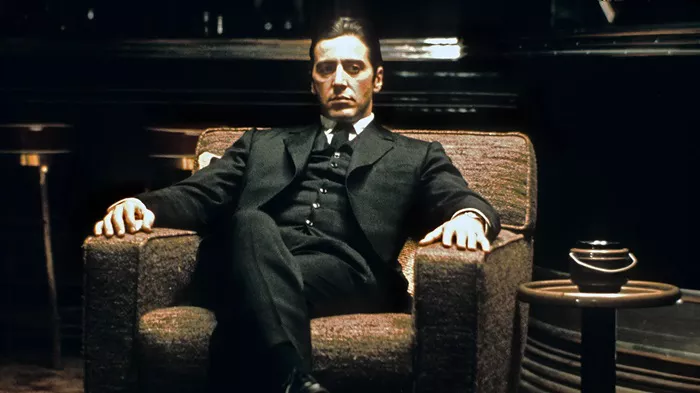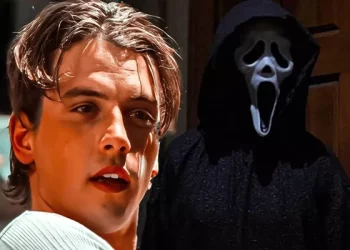Why is “The Godfather” so popular? The answer to this question lies in the film’s unparalleled blend of masterful storytelling, compelling characters, and cinematic excellence. Released in 1972, Francis Ford Coppola’s masterpiece has not only stood the test of time but continues to captivate audiences across generations. In this article, we will delve into the various elements that contribute to the enduring popularity of “The Godfather.”
The Power of Storytelling
At the heart of “The Godfather’s” popularity is its gripping narrative that weaves together themes of power, family, and betrayal. The film takes viewers on a journey through the Corleone family’s mafia empire, exploring the complexities of their relationships and the consequences of their choices. The storytelling prowess of Mario Puzo, who co-wrote the screenplay based on his novel, is evident in the meticulous construction of the plot. Each scene serves a purpose, propelling the story forward and keeping audiences on the edge of their seats.
Characterization: Memorable and Multifaceted
One of the key reasons why is “The Godfather” so popular is its unforgettable characters. From the patriarchal Vito Corleone, played by Marlon Brando, to the conflicted Michael Corleone, portrayed by Al Pacino, each character is richly developed and leaves a lasting impression. The depth and complexity of the characters allow audiences to empathize with them, even as they engage in morally ambiguous actions. The nuanced performances of the cast contribute to the authenticity of the characters, making them not just fictional entities but individuals with relatable struggles and motivations.
Iconic Performances
The question of why is “The Godfather” so popular is incomplete without acknowledging the stellar performances of the cast. Marlon Brando’s portrayal of Vito Corleone earned him an Academy Award for Best Actor, and his method acting brought an unprecedented level of realism to the character. Al Pacino’s transformation from a reluctant outsider to a ruthless leader is a masterclass in acting. The chemistry among the cast members, including James Caan, Robert Duvall, and Diane Keaton, adds layers to the narrative and enhances the film’s overall impact.
Cinematic Excellence: Visuals and Direction
“The Godfather” is not just a film; it’s a visual and directorial triumph. Cinematographer Gordon Willis’s groundbreaking use of shadows and low-key lighting techniques created a distinctive visual style that became synonymous with the film. Francis Ford Coppola’s direction elevated the material, infusing it with a sense of gravitas and authenticity. The strategic pacing and deliberate framing of each shot contribute to the film’s immersive experience, making it a benchmark for cinematic excellence.
Musical Mastery: The Godfather Theme
An often overlooked aspect of why is “The Godfather” so popular is the hauntingly beautiful score composed by Nino Rota. The main theme, characterized by its melancholic melody, has become synonymous with the film itself. The music not only complements the narrative but also enhances the emotional impact of key scenes. The Godfather theme, with its evocative power, has transcended the boundaries of cinema and become an iconic piece of music in its own right.
Social and Cultural Relevance
“The Godfather” is more than just a cinematic masterpiece; it has embedded itself into the fabric of popular culture. The film’s exploration of power dynamics, loyalty, and the American Dream resonates with audiences on a deeper level. Its influence extends beyond the screen, shaping discussions about morality, family values, and the pursuit of success. The Corleone family’s struggles and triumphs mirror universal themes, making “The Godfather” a timeless reflection of societal aspirations and dilemmas.
Legacy and Impact on Filmmaking
The question of why is “The Godfather” so popular is also a testament to its lasting impact on the world of filmmaking. The film’s success paved the way for a new era of American cinema, influencing subsequent generations of filmmakers. The combination of strong storytelling, compelling characters, and visual artistry established a template for excellence that filmmakers aspire to emulate. Coppola’s directorial choices and the film’s overall success set a standard that has become a reference point for quality in the industry.
See Also: Which Movie Has a 10/10 Rating on IMDb?
Moral Ambiguity: A Key Ingredient
A central element that contributes to the enduring popularity of “The Godfather” is the exploration of moral ambiguity. The characters in the film often find themselves navigating a murky ethical landscape, blurring the lines between right and wrong. This moral complexity adds depth to the narrative, challenging audiences to reflect on their own values and judgments. The film’s refusal to provide easy answers or neatly resolve moral dilemmas sets it apart and invites viewers to engage in a more profound and thought-provoking cinematic experience.
Attention to Detail: The Godfather’s World
The meticulous attention to detail in the creation of “The Godfather’s” world is another reason behind its popularity. From the authentic costumes and set designs to the use of real locations in New York, the film immerses viewers in the gritty reality of the mafia lifestyle. The authenticity of the world depicted on screen adds a layer of credibility to the storytelling, making the narrative more compelling and believable. The film’s commitment to recreating the atmosphere of 1940s and 1950s America contributes to its timeless appeal.
Quotable Dialogue: Cultural Impact
“Why is ‘The Godfather’ so popular?” – a question that finds part of its answer in the film’s iconic and often quoted dialogue. The screenplay’s memorable lines have become ingrained in popular culture, with phrases like “I’m gonna make him an offer he can’t refuse” becoming synonymous with power and influence. The film’s dialogue transcends its original context, finding its way into everyday conversations and establishing a linguistic legacy that further cements its place in the cultural zeitgeist.
Universal Themes: Timeless Relevance
The universal themes explored in “The Godfather” contribute to its timeless relevance. While the film is set in a specific time and place, its exploration of power, family, and the consequences of choice resonates across cultural and temporal boundaries. The struggles faced by the Corleone family are not confined to a particular era; they are timeless human experiences that continue to be relevant to audiences around the world. This universality ensures that the film remains a relevant and impactful piece of storytelling.
Conclusion: The Godfather’s Enduring Allure
In answering the question of why is “The Godfather” so popular, one must consider the convergence of storytelling brilliance, exceptional performances, cinematic mastery, and cultural impact. The film’s enduring allure lies in its ability to transcend the boundaries of time and culture, resonating with audiences on a profound and universal level. As we continue to explore and analyze the intricacies of “The Godfather,” it becomes evident that its popularity is not merely a result of historical context but a testament to the enduring power of exceptional filmmaking. In the vast landscape of cinema, “The Godfather” stands as a colossus, its legacy undiminished, and its impact indelible.

























